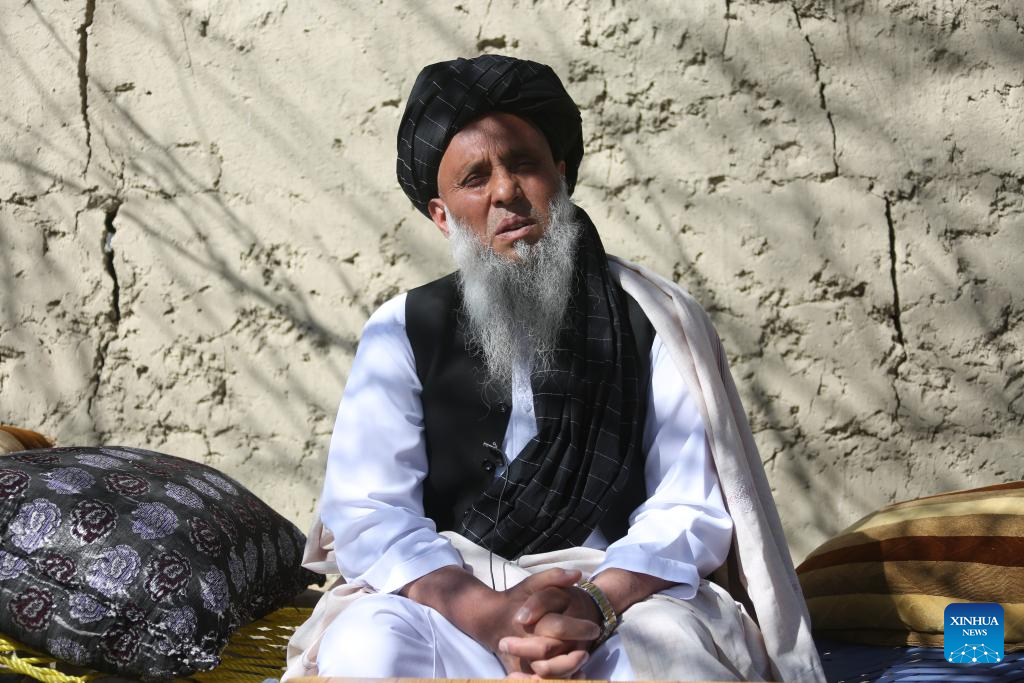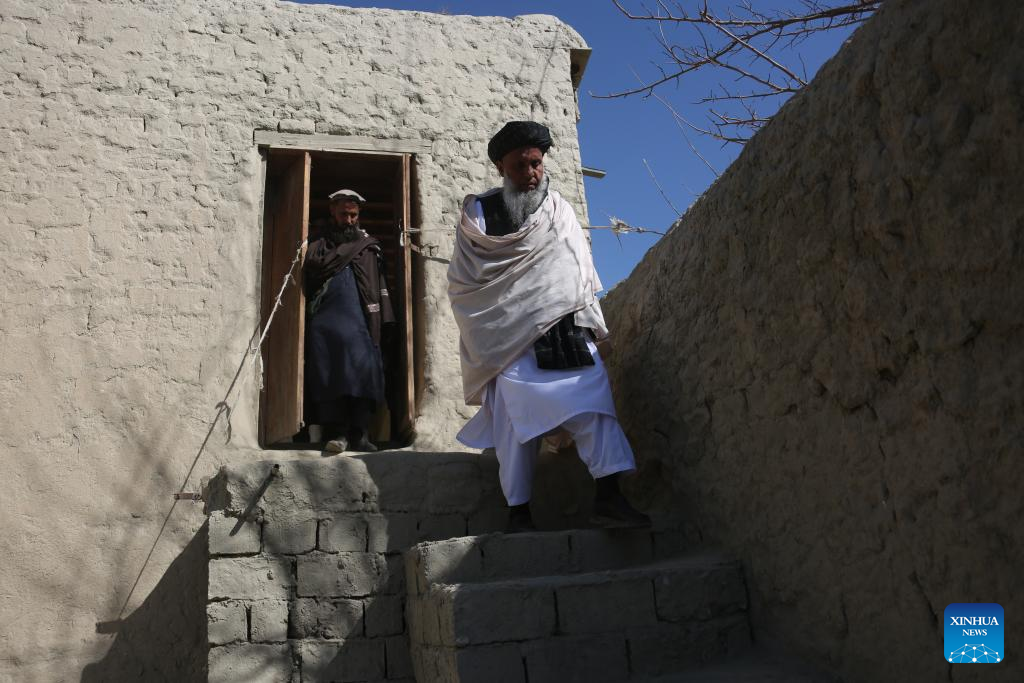
Khan Mohammad sits outside his home in the Afghan village of Hadia Khil on Feb. 13, 2025.(Photo by Saifurahman Safi/Xinhua)
CHAPARHAR, Afghanistan, Feb. 16 (Xinhua) -- Like hundreds of thousands of Afghans who endured imprisonment in U.S. detention centers during the two-decade presence of U.S.-led forces in Afghanistan, 57-year-old Khan Mohammad carries bitter memories of being illegally detained for years.
"My children were small when I was arrested. After my release and return home, I couldn't recognize any of them until they introduced themselves one by one, from the eldest to the youngest," Khan, the head of a 10-member family, told Xinhua recently in his village.
Living in a mud-brick house amid a barren and ravaged garden in the remote village of Hadia Khil, the former prisoner alleged that he had been detained for nearly two decades by the U.S. military without committing any crime.
BASELESS ACCUSATIONS
"They (the Americans) accused me of orchestrating a major conspiracy to attack Jalalabad airport and kill many Americans," recalled Khan, who was recently freed from U.S. custody. "But I did nothing. I completely denied the allegations."
Arrested by U.S. troops in 2006 from Jalalabad, the provincial capital of Nangarhar, he was sentenced to life imprisonment in the United States.
However, in January, he was released and returned home as part of a prisoner exchange deal between the United States and the Afghan interim government.
Despite being 57 years old, he appears at least a decade older. His hands tremble as he recounts his ordeal.
The former detainee said that when American troops captured him, they blindfolded and gagged him, and then placed him in a small room at Jalalabad airport before transferring him to the U.S. military base in Bagram.
Eventually, he was flown to Washington, D.C..
"My story is a long one," he muttered. "In Bagram, I was like the other prisoners. Then they (the Americans) transferred me to the United States. The journey was terrifying. They tied my hands and feet, blindfolded me, and blocked my ears. The distance was long, and I was in pain the whole time."
Sitting on an old-fashioned traditional bed locally called "caat," and surrounded by his sons, grandsons, and friends, the bearded Khan spoke in a loud, determined voice: "Freedom is more precious than anything."
"Yes, I am very happy, and so are my children and family members. We are all happy," he said, describing the joy of his release and return home.
YEARS OF ISOLATION, HARDSHIP
In Bagram, the International Committee of the Red Cross helped Khan communicate with his family through letters. However, after he was transferred to the United States, no one assisted him.
From Bagram, he was sent to Washington, D.C. for further interrogation. Following a court judgment, he was imprisoned in California, where he served his sentence before being released in January as part of the prisoner exchange deal.
Reflecting on prison life, he recounted, "Prison is a place of suffering. In Bagram, each tiny cell, roughly 5 meters wide and 6 meters long, was crammed with 15 to 20 prisoners."
"The days and nights blurred together. You couldn't tell whether it was morning or evening," he said.
LEGACY OF U.S. DETENTION
During its 20-year military presence in Afghanistan, which ended in August 2021, U.S. forces committed a range of abuses, according to Afghan citizens.
These included the killing of innocent civilians, arbitrary arrests of farmers, students, and teachers on unproven allegations of terrorist links, and devastating airstrikes that targeted homes and even wedding celebrations.
Hundreds of innocent people, including Afghan security personnel, lost their lives in so-called "friendly fire" incidents. Meanwhile, the U.S. military detained thousands of Afghans, holding them in military bases across Afghanistan, including Bagram and Kandahar, with some being transferred to the notorious Guantanamo Bay prison.
In recent years, several Afghan detainees, including some high-ranking officials in the Afghan interim government, have been released from U.S. custody and allowed to return home.
Reports indicate that at least one more Afghan remains imprisoned in the United States, while an American citizen is believed to be held in Afghanistan. ■

Khan Mohammad (front) goes downstairs at home in the Afghan village of Hadia Khil on Feb. 13, 2025.(Photo by Saifurahman Safi/Xinhua)



